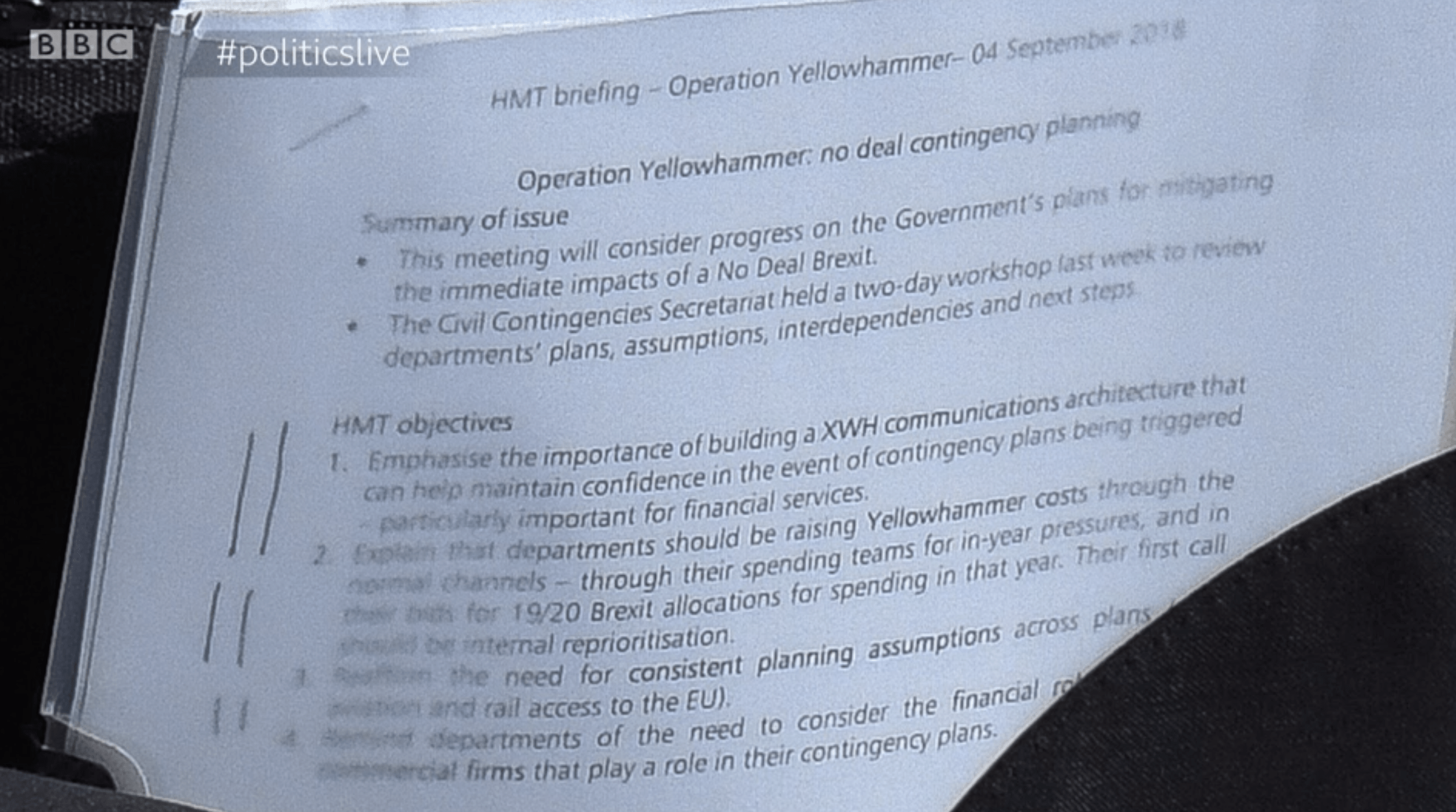Operation Yellowhammer aims to mitigate the disruptive effects of Brexit within the UK, and should last about three months. It was developed by the Civil Contingencies Secretariat (CCS), a department of the Cabinet Office responsible for emergency planning.
To better prepare the British public for the eventuality of a no deal exit, the publication of document excerpts was expected on Tuesday, September 3rd, precisely on the day of the clash between the Prime Minister Boris Johnson’s – now defunct – majority and the opposition reinforced by around twenty Tory “rebel” votes to prevent the government from exiting the EU without an agreement on 31 October next.
Over the weekend, government officials worked frantically to revise the Operation Yellowhammer document, allowing Michael Gove, Minister for no-deal planning, to hope he could publicly use the document to prove the government is in control of the situation. But on Monday, Gove and other ministers decided to abandon the hypothesis of the publication of a watered-down document. Internal sources reveal “the meeting did not go well. The whole thing was seen as far too pessimistic about no deal.”
Last month, the Sunday Times published excerpts from the Yellowhammer document, according to which, in the event of a no-deal Brexit, Britain will face fuel, food and medicine shortages, and three months of chaos in its ports. The document, labeled “official sensitive”, warns that trucks could be delayed for two and a half days in ports and that medical supplies could be vulnerable “to severe extended delays”. It also stated the government expected a hard border return in Ireland.
Although officials working on the rewrite claimed the document had been deliberately “neutralized”, it was still considered too gloomy for publication to the general public. Hilary Benn, Chair of the Commons Brexit Committee and first signatory of the Bill designed to block a no-deal exit on October 31st before the prorogation of Parliament, stated: “A sanitised version of the Operation Yellowhammer report will not do. The government needs to be completely open and transparent with MPs and the public about the full implications of the damage that a no-deal Brexit would inflict on the country.”
Let’s recap: a little over a month of a possible no-deal exit – option to which the Johnson government appears inclined, given also the innumerable indiscretions from EU and Irish sources according to which the British government has not made any alternative proposals for a new agreement -; at only a few days from the planned prorogation of a Parliament fighting hard to prevent the scenario of a no-deal exit on October 31st, putting the government in a net minority; and with Johnson pushing for snap elections on October 15 with an official motion presented to the House of Commons to “decide who will go to Brussels on October 17th to deal with the EU” – an election that would therefore rotate almost exclusively around this issue -, the government refuses to to inform Parliament and the electorate of what would be the foreseen effects of the proposal the continue to defend arduously against the increasingly numerous “traitors of the popular will”, because the scenario is “too negative”.
Leaving aside personal opinions in favour or against Brexit, it is all too evident, that little has been learned from Blair’s unfortunate decision to go to war in Iraq on the basis of “fabricated” and “extremely confidential” information. It is hard not to see a profound contempt for the British citizens who will have to pay the price of this further violation of their right to know. More than being buried in some Downing Street drawer, the “yellow hammer” hangs dangerously over the sovereign people’s head.
Laura Harth

